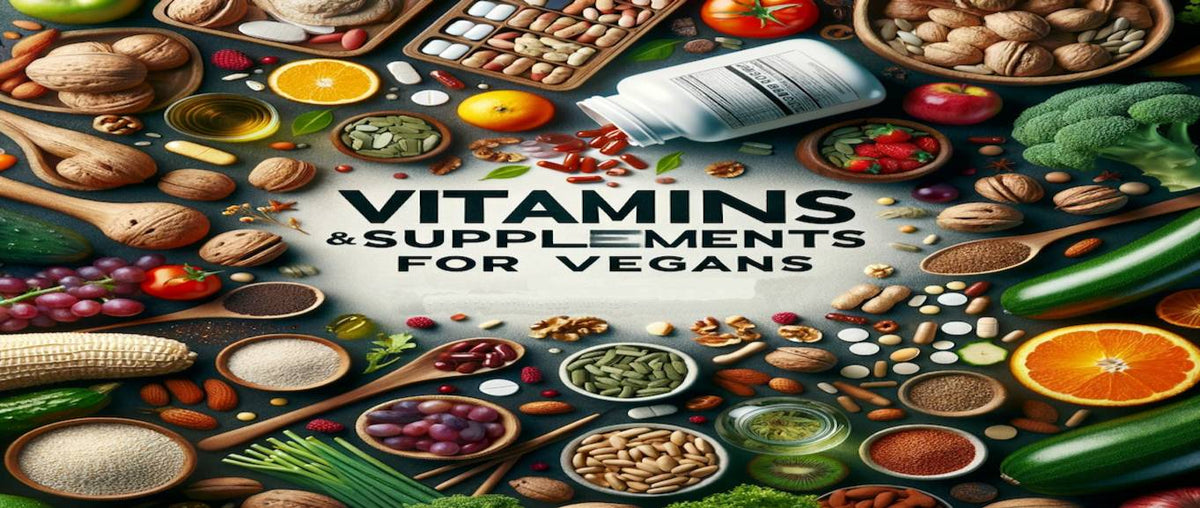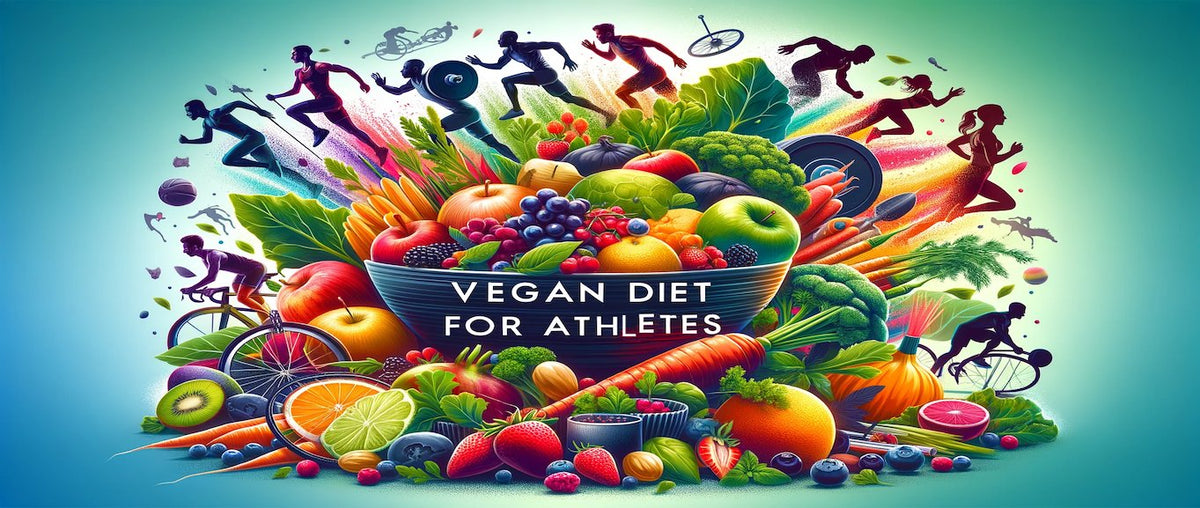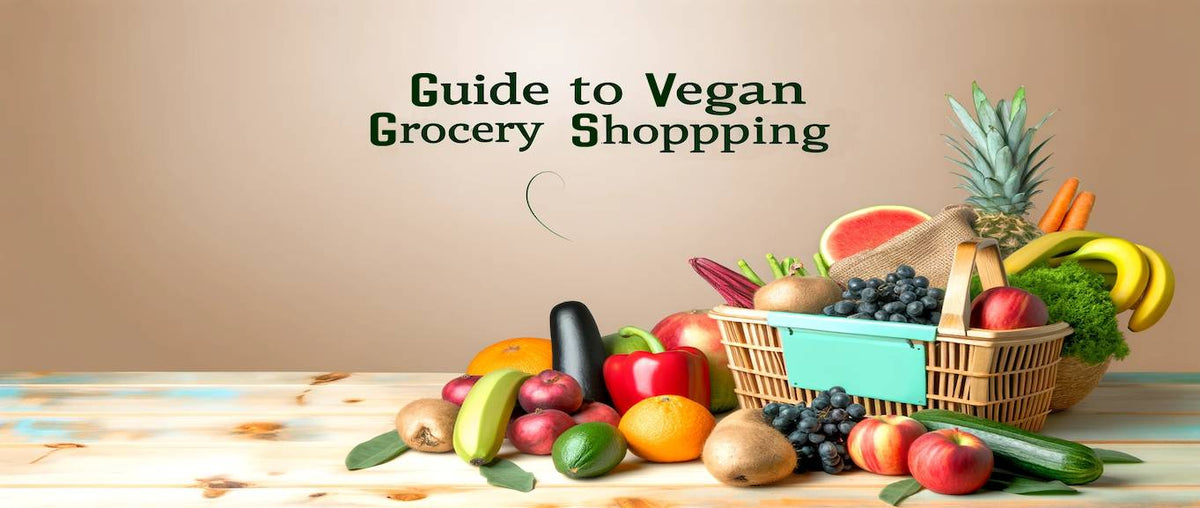Vitamins and Supplements for Vegans
Vegan diets are increasingly popular for their health and environmental benefits. However, they require careful planning to ensure all nutritional needs are met. This guide explores essential Vitamins and Supplements for Vegans to maintain optimal health.
Key Takeaways
- Understanding the necessity of supplements for a balanced vegan diet.
- Key vitamins and minerals for vegans include B12, D, Iron, and Omega-3 fatty acids.
Why Vegans Need Supplements
A vegan diet excludes all animal products, leading to potential nutritional gaps. Vitamins like B12, usually abundant in animal products, can be scarce in plant based diets. Supplements play a crucial role in filling these nutritional gaps and preventing deficiencies.
Why Do You Need Vitamins and Supplements If You’re Vegan?
Vegans need certain supplements to compensate for nutrients not readily available in plant-based foods. Essential nutrients like B12, Vitamin D, and Omega-3 fatty acids are typically found in animal products. Without these, vegans risk deficiencies that can impact health significantly.
What Supplements Should Vegans Take?
The most crucial supplements for vegans include:
- Vitamin B12: Essential for nerve function and blood cell formation.
- Iron: Important for oxygen transport and energy production.
- Vitamin D: Vital for bone health and immune function.
- Omega-3 Fatty Acids: Crucial for heart, brain, and eye health.
- Calcium: Necessary for bone and teeth strength.
- Vitamin K: Important for blood clotting and bone metabolism.
- Iodine: Essential for thyroid function.
- Zinc: Important for immune function and wound healing.

Vitamin B12
Vitamin B12 is crucial for nerve function and blood cell formation. Unfortunately, it's virtually absent in plant-based diets. Vegans should seek fortified foods or supplements to meet their B12 needs, typically recommended at 2.4 µg per day.
Iron
Iron is vital for transporting oxygen in the blood and plays a key role in energy production. Plant-based iron (non-heme iron) is less readily absorbed than the heme iron found in animal products. Vegans should aim for 1.8 times the normal recommended iron intake and consider supplementation, especially women of childbearing age.
Vitamin D
Vitamin D is essential for bone health and immune system function. It's challenging to obtain sufficient Vitamin D from a vegan diet alone. Sun exposure and fortified foods can help, but supplementation is often necessary, especially in areas with limited sunlight.
Omega-3 Fatty Acids
Omega-3 fatty acids are important for heart health, brain function, and eye health. Plant-based sources like flaxseeds and walnuts contain ALA, a form of Omega-3, but EPA and DHA are typically found in fish. Vegans may consider algae-based supplements to ensure adequate intake of all forms of Omega-3 fatty acids.
Calcium
Calcium is crucial for maintaining strong bones and teeth. While some plant-based foods offer calcium, absorption rates vary. Vegans should focus on calcium-fortified foods and may consider supplements to meet the recommended daily intake of 1,000 mg.
Vitamin K
Vitamin K plays a significant role in blood clotting and bone health. It is found in green leafy vegetables like kale and spinach, which should be a staple in vegan diets. For those not consuming enough of these vegetables, a supplement may be necessary.
Iodine
Iodine is essential for thyroid function, which regulates metabolism. Seaweed is a good plant-based source, but its iodine content is variable. Vegans not regularly consuming iodine-rich foods should consider a small daily supplement of about 150 µg.
Zinc
Zinc is crucial for immune function, wound healing, and DNA synthesis. Plant-based sources include legumes, nuts, and whole grains. Vegans should be mindful of zinc intake and consider supplements if their diet lacks these foods.

Choosing the Right Supplements
Selecting high-quality, vegan-friendly supplements is crucial for optimal health.
- Read labels carefully to avoid animal-derived ingredients like gelatin in capsules.
- Look for third-party certifications such as USP, NSF, or ConsumerLab to ensure purity and potency.
- Follow the Recommended Daily Allowance (RDA) to prevent overdosing on fat-soluble vitamins like A and E.
Also Read
Safety and Dosage
Understanding the safe consumption of supplements is vital.
- Consult with a healthcare provider before starting any new supplement, especially if you have existing health conditions or take medications.
Supplements to Avoid
Some supplements may be unnecessary or harmful to vegans.
- Avoid high doses of single nutrients unless prescribed by a healthcare provider.
- Be wary of supplements with exaggerated health claims that seem too good to be true.
Vegan Diet and Supplement Myths Debunked
Many myths surround vegan diets and supplementation.
- Protein deficiency is often overstated; a well-planned vegan diet typically provides enough protein.
- Soy products, contrary to popular belief, are healthy and safe for most people.
Conclusion
Supplementation plays a key role in a vegan diet to ensure all nutritional needs are met. Choosing the right supplements and understanding their safe usage is essential for maintaining optimal health. By debunking common myths and providing accurate information, this guide aims to support vegans in making informed decisions about their nutrition.
Craving a delicious vegan meal? Look no further! We've got a guide to the best vegan restaurants in India, ready to help you discover amazing plant-based eats in your city.










